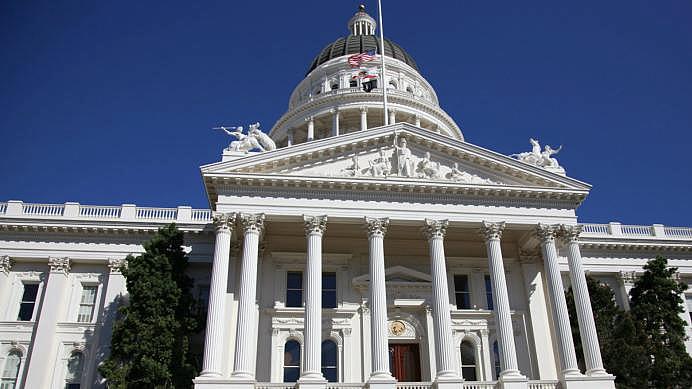Health care plans for undocumented Californians may be scaled back

Andrew Nixon / Capital Public Radio
Two proposals to offer health coverage to all undocumented residents passed major hurdles at the Capitol on Thursday, but they may not have the financial backing to cross the finish line.
Both SB 29 and AB 4, which would expand Medi-Cal to income-eligible adults regardless of immigration status, are moving forward after clearing their respective appropriations committees. The Senate bill, by Sen. Maria Elena Durazo, D-Los Angeles, passed on the condition that it conform to the chamber’s budget proposal.
But the Senate Committee on Budget and Fiscal Review is setting aside funding for just two groups within the state’s undocumented population — young adults ages 19 to 25 at a cost of $98 million, and seniors ages 65 and over at a cost of $62.5 million.
The Senate bill will be scaled back to match the financial allocations. The Assembly budget subcommittee has not released its proposal yet.
Undocumented children in California became eligible for full-scope Medi-Cal in 2016. People over age 18 are currently eligible for a limited version of the program that covers only emergencies and pregnancy-related care.
Gov. Gavin Newsom is proposing expanding comprehensive coverage to young adults up to age 26. He estimates the cost of covering the entire undocumented population at $3.4 billion, and said earlier this month that taking that step would be a major financial challenge.
Anthony Wright, executive director of consumer group Health Access and a leading universal health care advocate, says the movement has always had to work in steps.
“Some of these expansions are hard to do all at once,” he said. “We do want to get to the goal of all.”
Also in the Senate budget proposal is a plan to increase eligibility for Medi-Cal by one year every fiscal year, beginning with expansion to people age 26 in 2020. After a year, the program would be open to people up to age 27, the next year up to age 28, and so on, in an effort to prevent enrollees from aging out.
Young adults have been the focus this year, but they make up a mere 8% of the state’s undocumented population, according to a report from the University of California, Los Angeles. Just 2% are seniors, and 82% are working-age adults. The rest are kids.
Advocates for expansion say giving everyone access to preventive care would save money spent in the emergency room, while some conservative groups say those who are not living in the country legally don’t have a right to public health care programs.
Follow the USC Center for Health Journalism Collaborative series "Uncovered California" here.

